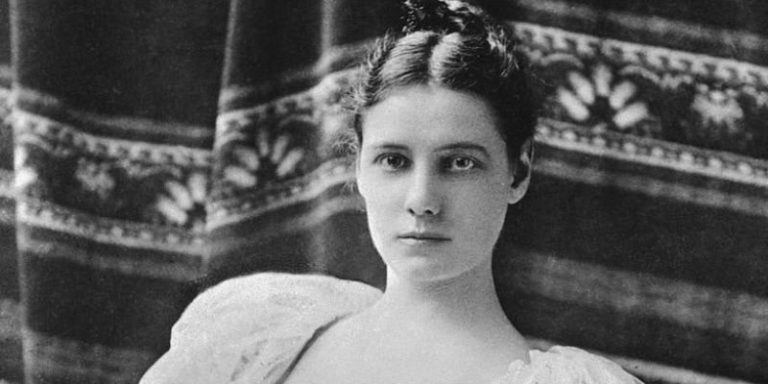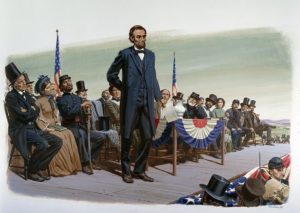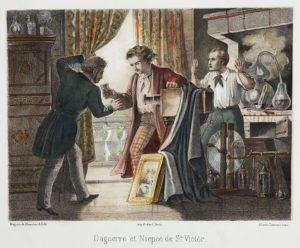This Week in History: November 13-19
Nellie Bly begins her around-the-world journey.
By: Kelli Ballard | November 13, 2022 | 1127 Words

Nellie Bly (Getty Images)
“What is history? An echo of the past in the future; a reflex from the future on the past.” ~ Victor Hugo
November 14, 1889: Nellie Bly Started Her Around the World Trip
When Jules Verne wrote Around the World in 80 Days, published in 1872, he probably never thought it would inspire a competition between two female reporters to outdo his story. Elizabeth Cochrane, better known by her pen name Nellie Bly, had already made a reputation for herself by going undercover in a psychiatric asylum to expose the horrible conditions there – a first in investigative reporting. Now, she wanted to challenge the book character Phileas Fogg’s world travel record, saying she could do the same in less time.
During this time in history, women did not have equal rights and it was very difficult to work in a “man’s” world. When she told her editor she wanted to make the journey, he said, “No one but a man can do this.” She replied, “Very well. Start the man, and I’ll start the same day for some other newspaper and beat him.” When she reached Paris, Nellie Bly met with Verne himself, who told her, “If you do it in seventy-nine days, I shall applaud with both hands.”
Bly set a goal of 75 days but was able to beat that and complete the trip in just 72 days. She traveled by train, horse and donkey, steamship, and rickshaw. It wasn’t until she reached Hong Kong that Nellie even knew she was competing against another female reporter, Elizabeth Bisland of Cosmopolitan magazine.
While traveling, Bly sent daily telegrams describing her experiences, which were published in the New York World newspaper, where she worked. Upon her return, she was met with well-wishers and congratulations, beating out Bisland by four days.
Of her many accomplishments, maybe one of the most amazing was to make a respectable professional name for herself at a time when women didn’t even have the right to vote yet. Brooke Kroeger, a journalist who wrote Bly’s biography, said, “I can’t imagine the editors of her day were excited about the idea of throwing a woman onto the front page as often as she got there. But she got there nearly every time she wrote, which in itself is astounding. It’s hard to understand today what that really meant in its context.”
Other Notable History Mentions
November 13, 1927: The Holland Tunnel opened. It runs under the Hudson River connecting New York City and Jersey City. It was the world’s longest underwater tunnel at the time it opened.
November 13, 1942: Five brothers (the Sullivans) died when the USS Juneau sank after being struck by a Japanese torpedo. This led to the Navy changing regulations so that close relatives could not serve on the same ship.
November 13, 1956: The Supreme Court ruled that it was unconstitutional to have racial segregation on public buses.
November 14, 1666: In Britain, one of the first experimental blood transfusions took place. It was described in the diary of Samuel Pepys, who reported that the operation was conducted between two dogs. In November 1667, physician Richard Lower transfused blood from a sheep into a man.
November 14, 1770: James Bruce, a Scottish Explorer, discovered the source of the Blue Nile river at Lake Tana, in Ethiopia.
November 15, 1777: The Continental Congress adopted the Articles of Confederation.
 November 15, 1864: Troops following General William Tecumseh Sherman burned the city of Atlanta during the Civil War.
November 15, 1864: Troops following General William Tecumseh Sherman burned the city of Atlanta during the Civil War.
November 15, 1889: Brazil became a republic.
November 15, 1969: In Washington, DC, 250,000 people gathered to protest the Vietnam War. It was the largest antiwar rally in American history.
November 16, 1918: Hungary became an independent republic.
November 16, 1989: F.W. de Klerk, the president of South Africa, announced the abandonment of the Separate Amenities Act. This made it so that the beaches in the country were open to all races.
November 16, 1995: Bosnian Serb leaders Radovan Karadzic and Ratko Mladic were charged with genocide by the United Nations. Their actions were part of the Yugoslav Wars, a conflict between the different ethnic groups in Yugoslavia. In 1991, Yugoslavia started breaking up into separate countries, resulting in violence and wars that lasted until 2001.
November 17, 1558: At the age of 25, Queen Elizabeth I ascended the throne of England, where she ruled until she was 69.
November 17, 1734: John Peter Zenger, the publisher of the New York Weekly Journal, was arrested and charged with libel against the governor of New York. What he printed was the truth and not libel, the court found, and the case became a big step in promoting freedom of the press – one of the rights guaranteed by the First Amendment.
November 17, 1800: The US Congress had its first meeting in Washington, DC – the new capitol. John Adams was the first president to reside at the Executive Mansion, renamed later the White House.
November 17, 1869: After more than ten years of construction, the Suez Canal opened.
November 17, 1993: The North American Free Trade Agreement (NAFTA) was approved by the House of Representatives.

Abraham Lincoln (Illustration by Ed Vebell/Getty Images)
November 18, 1993: After more than 300 years of white majority rule, South Africa adopted a new constitution providing civil rights to blacks.
November 19, 1493: Christopher Columbus discovered Puerto Rico during his second voyage to the New World.
November 19, 1863: President Abraham Lincoln gave the famous Gettysburg Address.
November 19, 1939: Construction for the first presidential library began under President Franklin D. Roosevelt, who donated the land near his home in Hyde Park, New York.
November 19-20, 1990: The Cold War ended with the signing of the Treaty on Conventional Forces in Europe by the leaders of NATO.
November 19, 1998: The House of Representatives started an impeachment inquiry of President Bill Clinton.
Famous Birthdays
Robert Louis Stevenson (November 13, 1850) was born in Edinburgh, Scotland. An author, he is best known for The Strange Case of Dr. Jekyll and Mr. Hyde and Treasure Island.

Louis Daguerre (Photo by SSPL/Getty Images)
Robert Fulton (November 14, 1765) was born in rural Pennsylvania. He developed the steamboat.
Aaron Copland (November 14, 1900) was born in Brooklyn, New York. He was a music composer with orchestral works including Appalachian Spring, which he won a Pulitzer Prize for, and The Heiress, which won an Oscar.
Louis Daguerre (November 18, 1789) was born in Cormeilles, near Paris. He developed photography using the daguerreotype process, which produced pictures that lasted instead of fading away.
Sir William Gilbert (November 18, 1836) was born in London. An author, he worked with Arthur Sullivan to write the Gilbert and Sullivan comedy operas, including The Pirates of Penzance and The Yeoman of the Guard. He died of a heart attack while trying to save a drowning woman.
James A. Garfield (November 19, 1831) was born in Orange, Ohio. He was the 20th president of the US.
















